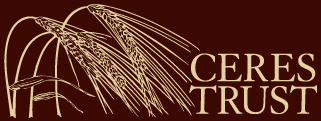Identifying Potato Varieties with Increased Levels of Mature Plant Resistance to Potato Virus Y for Improved Organic Seed Potato Production
Student Investigator: Chen Zhang, Department of Plant Pathology, University of Wisconsin-Madison, [email protected]
Major Professor: Dr. Russell L. Groves, Department of Entomology, University of Wisconsin-Madison, [email protected]
Collaborating producers: Wisconsin Seed Potato Certification, Dr. Amy O. Charkowski, Department of Wisconsin-Madison, 1630 Linden Drive, Madison WI.
Project period: 2012-2014
Report submitted: Aug 2014
View/Download Full Report in PDF Format
Potato is one of the most economically important crops in the world. Wisconsin hosts the second most organic farmers in the United States behind only California. Potato Virus Y (PVY) (Fig. 1 and Fig.2) has been recognized as the top one disease in seed potato production and this viral disease can be vectored by more than 40 species of aphids in a non-persistent manner. Foliar applications of highly refined mineral oils seems to be the only action organic growers can take during the growing season to prevent aphid transmission, but is not as effective or efficient as desired.
Mature plant resistance (MPR) is a phenomenon which has long been observed in potato and other crops, yet is not a well-defined concept. It describes a reduction in disease incidence occurring as a result of aphid inoculations that occur later in the crop season which coincides with the time when the majority of aphids are migrating into potato fields. Funded by Ceres Trust, our goal has been to investigate mature plant resistance in selected varieties of potato against infection by Potato Virus Y and generate valuable information about the level of MPR in these tested varieties. Organic growers can be benefit from our outcome to adjust their management plans by incorporating varieties that possess this phenotypic attribute and by avoiding other varieties which appear to possess no MPR.
